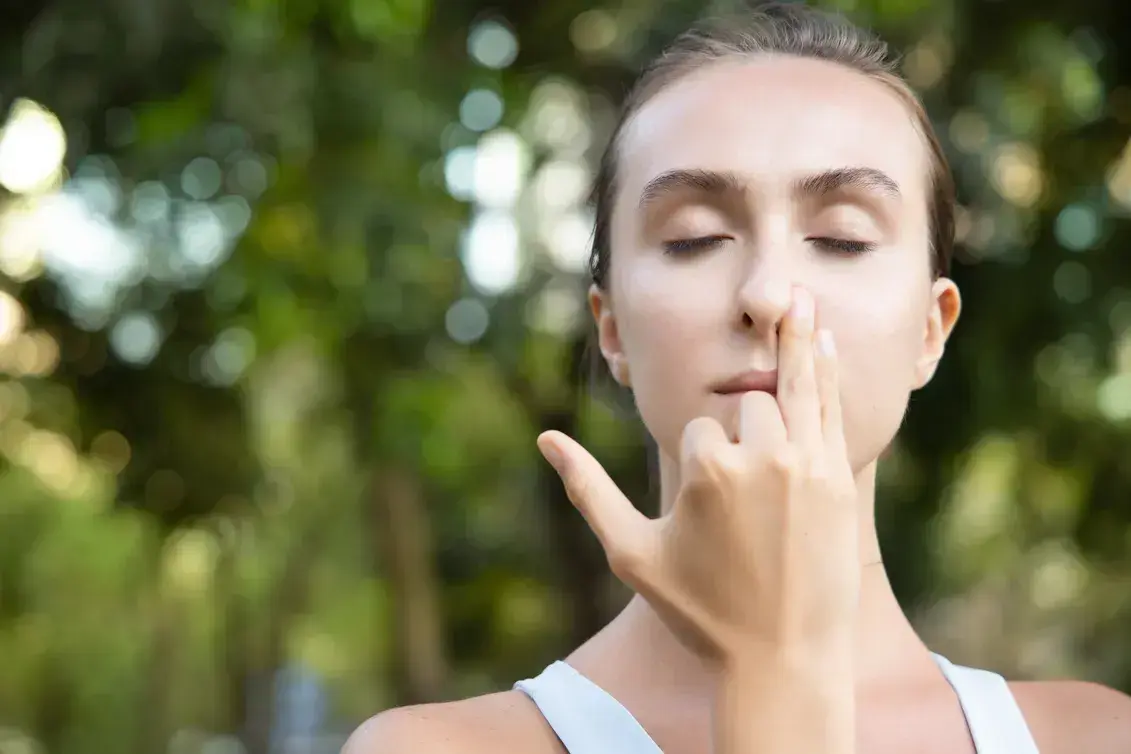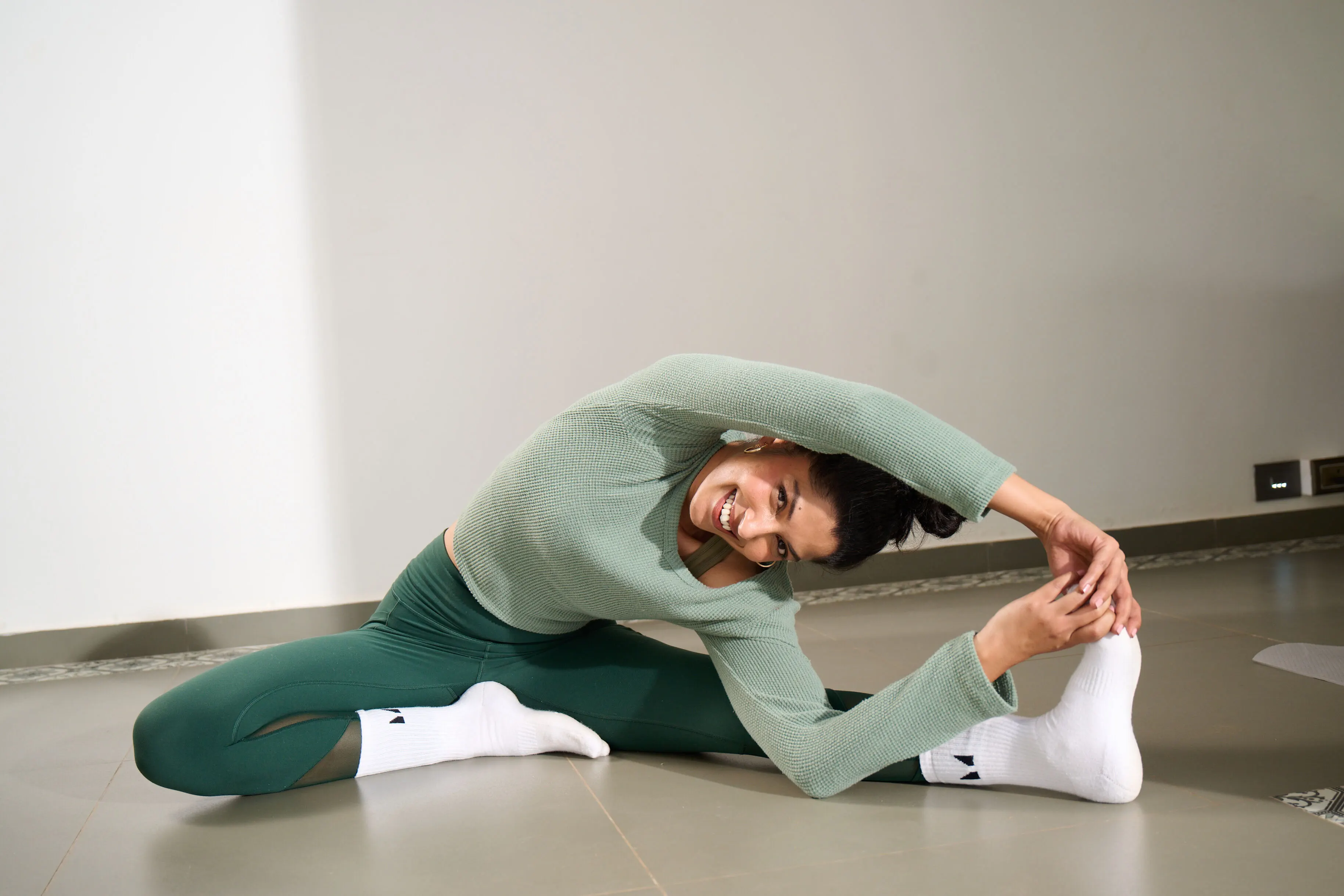We often hear how yoga improves health and well-being, and its impact on stress-relief. Physically, yoga improves strength and flexibility. However, what we don’t hear too often is yoga’s role in helping us strengthen our relationships. Yoga has a strong impact on our mental and emotional health, helping us show up in a better, strong and more balanced manner in our relationships.
Five ways in which yoga helps strengthen your relationships
Yoga Improves Awareness
Awareness is a cornerstone of healthy relationships. Being aware of your thoughts, feelings, and actions helps you respond mindfully rather than reacting impulsively. Whether interacting with your partner, parent, sibling, friend or colleague, yoga encourages you to cultivate awareness by encouraging you to be present in each moment, on the mat and in everyday life.
During yoga practice, you learn to focus on your breath and body sensations, tuning into the present moment. This heightened state of awareness helps you notice subtle shifts in your mood and energy levels, allowing you to manage them more effectively. In relationships, this means you are more attuned to the needs and emotions of those around you, fostering deeper empathy and understanding.
Practical Tip: Incorporate mindfulness meditation into your daily routine. Spend a few minutes each day observing your breath and thoughts without judgment. This practice will enhance your ability to stay present and mindful in your interactions with others.
Yoga Encourages the Flow of Prana
Prana or life force energy, is essential for overall well-being. Yoga practices that enhance the flow of prana help release stress and blockages, enabling you to be more present and aware in your relationships. Breathwork or pranayama and dynamic yoga poses stimulate the flow of prana throughout the body. This increased energy flow reduces stress, clears mental fog, and enhances emotional clarity. As a result, you can approach your relationships with a calm, centered, and open-hearted presence.
Practical Tip: Regular practice of breathing exercises such as Alternate Nostril Breathing (Nadi Shodhana) helps you balance the flow of energy and promotes mental and emotional harmony, benefiting both you and your relationships.
Yoga Helps You Let Go
Holding onto past hurts and traumas can hinder your ability to connect deeply with others. Yoga provides a safe space to release these trapped emotions, promoting healing and forgiveness. In fact, the hips are a common area where emotions are trapped. Tighter hips signify blocked emotions. This is why hip-openers are always good for emotional health. Certain yoga poses and breathwork facilitate the release of stored tension and emotions. By focusing on your breath and moving through various postures, you create an environment where suppressed feelings can surface and be acknowledged. This process helps you let go of past pain and make room for new experiences and connections.
Practical Tip: Practice restorative yoga poses, such as Child’s Pose (Balasana) or Reclining Bound Angle Pose (Supta Baddha Konasana) and hip-openers such as Bound Angle Pose (Baddha Konasana), Low Lunge, Garland Pose (Malasana), among others, to gently release emotional tension. Combine these poses with deep, slow breathing to enhance the letting-go process.
Yoga Cultivates Self-Acceptance
A healthy relationship with yourself is the foundation for healthy relationships with others. Yoga encourages objective perspectives and compassion, helping you build a strong sense of self-acceptance. Yoga promotes a non-judgmental awareness of your body and mind. Through consistent practice, you learn to appreciate your strengths and accept your imperfections. This self-acceptance fosters a positive self-image, reducing the need for external validation and allowing you to offer genuine love and support to others as well. Activating and balancing the Heart Chakra (Anahata Chakra) is beneficial for cultivating self-acceptance.
Practical Tip: Practice heart-openers and backbends such as Cobra Pose (Bhujangasana), Camel Pose (Ustrasana), Locust Pose (Shalabhasana) and Wheel Pose (Chakrasana). Engage in a daily gratitude practice. Each day, write down three things you appreciate about yourself. This simple exercise will reinforce self-acceptance and enhance your ability to give and receive love in your relationships.
Yoga Helps You be More Adaptive
Adaptation with changes is a key component of healthy relationships. Yoga teaches you to embrace things as they are, and adapt to the changes that are part of the parcel of the material world. This mindset helps you accept the quirks and imperfections of others, while quickly adapting and maintaining healthy boundaries. In yoga, you learn to accept your current state as stated in the previous point, whether it’s a physical limitation or an emotional challenge. This practice of acceptance extends to your interactions with others, teaching you to honor your partner’s individuality without imposing your expectations.
Practical Tip: Practice non-hoarding (Aparigraha) in your yoga practice and daily life. Let go of the need to control outcomes and trust that things will unfold as they should. Gradually, as you grasp the practice, you will realize how it helps you maintain a balanced perspective in your relationships.
When you learn to accept the true nature of yourself and those around you, understanding different personalities and attitudes, helps you navigate relationships with a more mindful, patient and open attitude. Yoga is a powerful tool for enhancing relationships. By improving awareness and helping you let go of past traumas, yoga creates a solid foundation for healthy and fulfilling connections with others. Regular yoga practice can help you cultivate self-love, fostering acceptance of yourself and others.
As you deepen your yoga practice, you will likely find that your relationships become more harmonious, empathetic, and resilient. Embrace these practices and watch as they transform not only your inner world but also your interactions with the people you care about.
Incorporate yoga into your daily life and foster strong and better relationships by joining live yoga classes regularly on Shvasa.










.jpg)













%201.png)

%201.svg)






%201.svg)